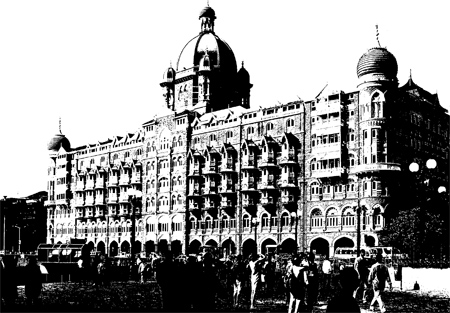INDIAN ARMED FORCES CHIEFS ON OUR RELENTLESS AND FOCUSED PUBLISHING EFFORTS

SP Guide Publications puts forth a well compiled articulation of issues, pursuits and accomplishments of the Indian Army, over the years

"Over the past 60 years, the growth of SP Guide Publications has mirrored the rising stature of Indian Navy. Its well-researched and informative magazines on Defence and Aerospace sector have served to shape an educated opinion of our military personnel, policy makers and the public alike. I wish SP's Publication team continued success, fair winds and following seas in all future endeavour!"

Since, its inception in 1964, SP Guide Publications has consistently demonstrated commitment to high-quality journalism in the aerospace and defence sectors, earning a well-deserved reputation as Asia's largest media house in this domain. I wish SP Guide Publications continued success in its pursuit of excellence.
Pockmarked & Perilous

The 26/11 terror attacks in Mumbai laid bare the inadequacies of the country’s intelligence agencies—the utter lack of speed, centralised control, cohesion and coordination.
November is generally a cool month in India as the sub-continent welcomes the nip in the air announcing the impending winter days. The milieu was much the same in 2008. But while the country, owing to its robust and growing internal economy backed by sound financial systems, parried against the storm of global economic meltdown, there was another storm gathering speed in the Arabian Sea—Pakistani terrorists were all set to expose for the umpteenth time the porosity of the Indian borders and the ineffectiveness of its intelligence and security systems.
On November 26, a mere 10 km from the Mumbai shore, where the night waves routinely splash against the bustling Marine Drive, popularly known as the Queen’s Necklace, lay an Indian registered trawler, Kuber. Hijacked by Pakistani terrorists off the Gujarat coast, the craft’s sole legal occupant, the skipper, lay slain with his throat slit from ear to ear, al-jihad style. Two inflatable rubber boats, with 10 men and substantial quantities of arms and ammunition, detached themselves from the trawler and raced towards Mumbai, their navigation made easy by the hand-held GPSs.
What followed was another blatant and brutal assault on the Indian soil carried out with military precision. The planners in Pakistan had selected the targets with a sinister focus to include affluent segments of society as also high-value citizens from abroad, particularly singling out the Americans, Britons and Israelis. The terrorist act not only brutalised Mumbai with the death toll reaching 180 and a much bigger figure for the wounded, it traumatised and left a permanent scar on the very psyche of the financial capital of the nation, an otherwise vibrant, dynamic and a world city. The terrorist attack also laid bare the inadequacies of the country’s intelligence agencies as well as lack of speed, centralised control, cohesion and coordination amongst the security and counter-terrorism forces.
Stung by public outcry and political opposition in the aftermath of the Mumbai attacks, a slew of long-awaited measures have been undertaken by the Indian government to thwart such attacks in future but, they have been taken with such haste that they lack clarity and their effectiveness would be in question. Take the case of National Investigation Agency (NIA). An otherwise much needed federal unit to tackle terrorism, the agency lacks any counter-terrorism function. Designed to investigate and prosecute terrorism cases, in its present form, however, the NIA neither has the means of unravelling anticipated terrorist conspiracies nor the mandate to apprehend the probable masterminds. While the agency has ostensibly been structured in the lines of the US Federal Bureau of Investigation (FBI), a comparison would be ludicrous. The FBI is the premier counter-intelligence agency of the US, in addition to being its counter-terrorism arm. It is also entrusted with other crimes that have federal ramifications, such as organised crime and public corruption. The current scenario affords India the opportunity to revamp and restructure the country’s ability to address terrorism, organised crime, cyber and economic crimes. However, among the current fragmented structures, the NIA is likely to become another toothless bureaucratic entity.





